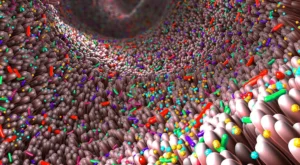Ross Pelton, RPh, PhD, CCN
August 30, 2017
The October 28, 2015 issue of the highly respected journal Nature contained an article that discussed the importance of the global microbiome and proposed the creation of an International Microbiome Initiative (IMI) to accelerate our understanding of how microbes influence the health of individuals and of the biosphere on our planet.
We are at a critical tipping point. Pesticides, insecticides, herbicides and fungicides are destroying the microbiome on the planet. These same toxic chemicals, along with processed foods, antibiotic drugs and a plethora of other environmental toxins, are increasingly harming human health.
I applaud the authors for recognizing the importance of an international effort to advance, coordinate and integrate research on the effect and influence bacteria have on our global ecosystem. I want to express a few thoughts I have on these issues from my perspective as a pharmacist, a microbiome scientist and a long-time health educator.
There are uncanny parallels between our human microbiomes and the microbiome of our planet. We now understand that an individual’s population of probiotic bacteria is one of the most critical aspects of creating and maintaining health. We also know the devastating effect the overuse antibiotic drugs have on an individual’s microbiome and his/her health. The incredible increase in the incidence of killer antibiotic-resistant bacterial diseases such as MRSA and Clostridium difficile (C. diff) is evidence of this problem.
The insecticides and herbicides used in agriculture are the equivalent of antibiotic prescription drug use in humans. The microbiome of plants and the ecosystem of the earth’s soils are as easily damaged by regular use of chemicals as is the human microbiome. An excellent book that opened my eyes to the unique parallels between the microbiome of plants and humans is titled The Hidden Half of Nature: The Microbial Roots of Life and Health by David Montgomery and Anne Bikle.
I hope that future research focuses more on the role that postbiotic metabolites play in the regulation of health in humans and of our planet. It is the compounds that probiotic bacteria produce that are the regulators of health. We refer to this wide range of compounds that bacteria produce as Postbiotic Metabolites.
Products that directly deliver postbiotic metabolites to the human intestinal tract are much faster and more effective at healing an individual with gastrointestinal complaints (a pathobiome) compared to just delivering probiotic bacteria. This explains the uniqueness of Dr. Ohhira’s Probiotics® which deliver probiotic bacteria, prebiotic foods and postbiotic metabolites in every capsule.
Dr. Ohhira also created a product to restore health to the soil and to plant microbiomes. Dr. Ohhira was a visionary scientist/microbiologist who understood the importance soil health and the health of a plant’s microbiome which is located in its rhizosphere (root ball) to the plant’s overall health. Dr. Ohhira created a probiotic product for soil restoration, which is well known in Japan, but unfortunately, not well known outside Japan.
To heal the microbiome of Planet Earth, we need to drastically reduce (or stop) the use of toxic pesticides & herbicides. We also need to stop relying totally on artificial fertilizers and return in part to recycling organic matter into our soils. Bacteria in the soil require diverse plant material for their food, which they in turn break down into nutrients for plant growth. The agricultural industry also needs to stop mono-cropping and return to crop rotation. This will increase the diversity of organic material in the soils which will in turn increase the diversity of bacteria in the soil. Greater diversity equals a stronger microbiome and a healthier ecosystem.
The same points pertain to the health of human microbiomes and the health of individuals. The incidence of chronic degenerative diseases has escalated exponentially in the past 70-80 years. This is due in large part to the dramatic increase in environmental toxins, which damage the microbiome of the planet and humans alike. A healthy microbiome is the foundation of good health.
Healing the microbiome needs to be a primary part of all protocols for healing. However, just taking probiotics is not sufficient. Healing requires addressing the entire intestinal ecosystem, not just throwing probiotic bacteria at the problem. Healing the whole microbiome ecosystem involves reducing inflammation, correcting intestinal permeability (ie. leaky gut), and eliminating allergic triggers from one’s life. Dr. Ohhira’s Probiotics® deliver postbiotic metabolites, which help to improve many of these dysfunctional aspects in a disturbed, dysbiotic gastrointestinal tract.
I applaud the efforts of the three scientists from Germany, China and the United States who have called for the creation of an International Microbiome Initiative (IMI). The hope is that this IMI will be supported by funding agencies and foundations around the world. This would ensure the sharing of standards across borders and disciplines, and bring cohesion to the multitude of microbiome initiatives that exist. I hope research continues to accelerate, which will continue to enhance our understanding and appreciation for the role that beneficial bacteria play in the regulation of health and all life on Planet Earth.




